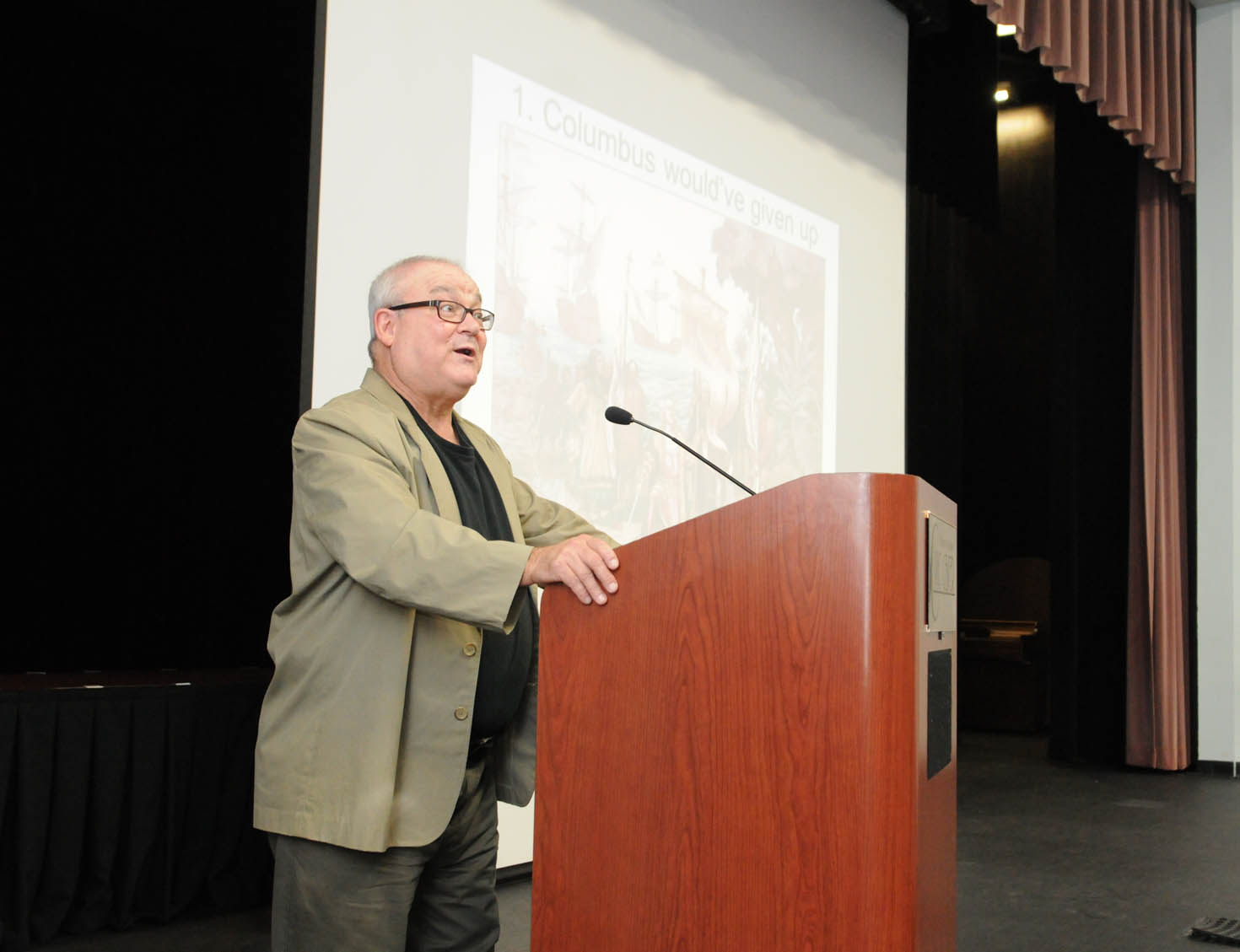
College News
CCCC students hear about American Indian contributions
01.29.2016 • College & Community, College General, Curriculum Programs
SANFORD - Dr. David LaVere, professor of American Indian history at the University of North Carolina at Wilmington and the author of several books on Indian history, recently spoke to Central Carolina Community College American history, American literature, and sociology students about the far-reaching contributions of the American Indian. The lecture was part of North Carolina's Road Scholar Program, sponsored by the N.C. Humanities Council.
England, Spain and most of Europe would not have prospered were it not for the efforts of the Indians, Dr. LaVere said. Dr. LaVere, who has just completed his seventh book, titled "The Tuscarora War: Indians, Settlers and the Fight for the Carolina Colonies," also lectures around the state about the history of North Carolina Indians and has written numerous articles for "Our State" magazine and historical journals.
"The Spanish wanted converts and workers in the new world to dig for gold for them. The English wanted animal hide trade allies and slaves," said Dr. LaVere. "The colonists would have starved. Everywhere the Europeans went in the new country, they relied upon Indians for survival. Christopher Columbus would have been the most disappointed person in the universe and his mission would have failed because it wasn't empty land the European settlers wanted -- it was people, workers who would enrich and empower them."
The Indians also left the settlers houses and villages that were already constructed, as the Indians were forced to abandon them because of disease. They taught the colonists how to grow tobacco, corn, squash, tomatoes, and other crops. In addition, they helped support the Irish during the Great Potato Famine of the 1800s in which masses of Irish immigrants took refuge in America.
"Indians helped create the American image of the cowboy as rugged individualist," Dr. LaVere said. "They have fought in every war on the American side and so much of America itself is intertwined with the Indian culture."
Dr. LaVere is an award-winning author and public speaker. Born in New Orleans, he served in the Marine Corps and later earned a Bachelor of Arts in Journalism from Northwestern State University. Upon graduation, he spent five years in Dallas as an advertising copywriter. Discovering he enjoyed writing history more than writing ad copy, he returned to Northwestern State and earned a Master's degree in history. He went on to Texas A&M University to earn a Ph.D. in history. Dr. LaVere came to UNC Wilmington in 1993.
The Road Scholar program has been offering speakers, free of charge, to public audiences since 1990. Their catalog of Road speakers include over 70 scholars whose lectures focus on history, literature, philosophy, ethics, religious studies, linguistics, jurisprudence, and other topics. This presentation by Dr. LaVere is made possible by funding from the North Carolina Humanities Council, a statewide nonprofit and affiliate of the National Endowment for the Humanities.
CCCC American History Instructor Bianka Stumpf stressed the importance of the Road Scholar program to students.
"We will be hosting another Road Scholar event later this spring -- Dr. Robert Miller on 'The Science of Climate Change,'" Stumpf said. "Dr. LaVere's and Dr. Miller's visits are part of our faculty effort to expose our university transfer students to cutting-edge research while still studying at the community college level. This partnership allows us to bring back to class discussion new findings in scholarship. It shows our university transfer students the dynamic nature of study - that it never rests and is reconsidered and reinvented all of the time."
For information about the American history program at Central Carolina Community College, visit the website at www.cccc.edu.

Dr. David LaVere, professor of American Indian history at the University of North Carolina at Wilmington and the author of several books on Indian history, recently spoke to Central Carolina Community College American history, American literature, and sociology students about the far-reaching contributions of the American Indian.
- Central Carolina Community College
- Serving Chatham, Harnett, & Lee Counties, NC
- 1-800-682-8353

